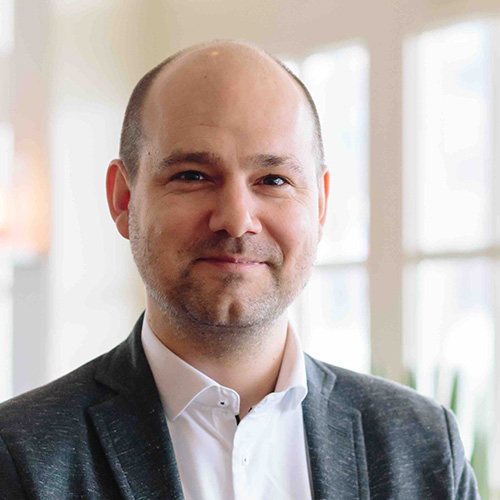Negotiation Skills for Nonprofits
HOW TO BUILD STRATEGIC PARTNERSHIPSWhy negotiation should be at the heart of every nonprofit
People who join nonprofits generally love the word cooperation. One cannot change the world alone: joining forces with others —colleagues, partners, donors— is the only way to do so. In the global fight around poverty, climate change, illiteracy and access to health care, Development Cooperation is the logical umbrella term. Negotiation, on the other hand, does not feature very prominently in the minds of non-profit professionals; neither does it often make the list of required skills in NGO job listings. More often than not, negotiation is perceived as a win or lose exercise in which two or more parties are dividing something of fixed value.
This short blog series covers the question why negotiation is essential to fundraising, communications and partnerships. Within this “negotiation triangle”, enhanced skill set can make the difference between success and failure.
How to build strategic partnerships
Partnerships are the bread and butter of nonprofits. They are an indispensable part of international development cooperation. Not only are they valuable to bring advocacy and program execution to scale, but they are also required to operate abroad and to obtain funding from the largest donors. Many donors, such as the EU, explicitly require multiple organizations to submit proposals together. In a few months the Dutch MFA will announce new criteria for the Strategic Partnerships it will support with significant amounts from its development cooperation budget. This supply driven cooperation, however, induces particular negotiation challenges, often turning constructive negotiation practices on its head.
A defining feature of so-called principled negotiation theory is the yin and yang between creating and dividing value. Almost every negotiation has the potential to create value, to increase the size of the pie that eventually must be divided. A common mistake is to skip over or pay scant attention to value creation. Often, mutual interests are not fully explored or creative options are not tabled. Instead, negotiators cut to what they see as “the chase”: dividing the smaller pie through a back-and-forth of proposals and counter proposals. The negotiation is seen as a win-lose proposition. More for me means less for you. In particular, in situations where partnership is driven by the donor, the risks are high. One organization often authors the content and what follows is old-fashioned positional bargaining with the others over bits and pieces for contractor and sub-contractors.
First create value, then talk about dividing.
As a non-profit director I have experienced the impact of this myself and the effects are not pretty. The full potential of cooperation goes untapped because parties do not spend enough time getting all interests on the table, let alone exploring creative ways in which all or most of these interest could be met. But worse, what is an opportunity for a stronger relationship between nonprofits often becomes a liability. The sub-contractors feel less or no ownership over the project as a whole and its design. They come to see it as a resource to be tapped rather than an impact generator. The lead applicant perceives its partners as not pushing their weight enough, doing the minimum work for maximum reward.
A few negotiation best practices in the design and submission phases can help avoid these risks. Key among them is to distinguish between people, process and product:
People
Check in on your relationship(s) before embarking on any process steps. Do not assume all is well because you personally have no issues with any of your counterparts. They may well have a few unresolved issues with you or with one another.
Process
Give the order and frequency of negotiations explicit attention. Obtain buy-in from prospective partners on process before moving on to substance. This means explicitly covering the intention both parties hold for the partnership, the mandate they have to negotiate/participate, the agenda for discussion and the foreseen timeline to conclude it.
Product (the substance)
Resist the temptation to table (your) solutions too early in the discussion. Your solution is a position on what works best (see blog Negotiating your funding on the risks of positional negotiation). Even if it is brilliant, it often invites the other parties to take on positions as well. People generally overestimate how persuasive rational arguments are in a negotiation. Ultimately, negotiation is the art of letting others have your way. So instead of going straight for your solution, spend time exploring interests and brainstorming a range of possible avenues to meet them. Your ideas stand a much better chance of succeeding if they emerge out of a joint exercise.
Especially when time pressure is high, organizations are tempted to skip over the basics of constructive negotiation principles. In the Netherlands, the new strategic partnership criteria announced by the Dutch MFA offer an opportunity to do things differently this year.

Stefan Szepesi
Stefan is the founder of Negotiation & Public Service (NPS), specializing in negotiation capacity building for non-profit professionals and civil servants. Prior to NPS, Stefan led the NGO Abraham Path Initiative as Executive Director for five years. Together with Han Valk Fundraising Consultancy & Interim Management, Stefan organizes the first negotiation training dedicated to fundraisers and project managers.
stay up to date
We have at heart to be a resource to you. According to your preference, we will share insights, trainings, networking events and career opportunities that might be of interest for anyone from entry-level to seasoned professionals.
Contact
Phone
+31 (0)6 30 69 45 95
Address
Eursinge 8, 7935AB Eursinge (de Wolden), The Netherlands
228 East 45th Street, Suite 9E New York, NY 10017, USA
info@hvfc-international.com
Join us on
© 2024 HVFC International. All rights reserved.
HVFC ® is a registered trademark of HVFC International B.V.

